- Home
- Philip Pullman
Daemon Voices Page 4
Daemon Voices Read online
Page 4
What I’m going to talk about today is not the reading of literature, or of children’s literature, but the writing of stories. I discovered thirty-five years ago in this university, if not in this room, that one thing I’m very bad at doing is literary criticism; but in the course of the subsequent thirty-five years I have learned something about the practical business of telling stories, so what I have to tell you today is actual hands-on stuff, what it’s like to be in the middle of a story as you’re telling it, and what considerations weigh with you, and what you can do when you’re stuck, and that sort of thing.
I say stories rather than novels, because I think of my novels firstly as stories, and only then as books, and only then as novels. Besides, I have published some stories that aren’t novels, and they’re just as difficult and interesting to write—I mean fairy tales such as Clockwork, or The Firework-Maker’s Daughter. As I say this, I seem to be implying a sort of distinction here between story and literature, if you like, or between the making-up part and the writing-down part, or the events and the sentences. It is a real distinction, and it’s recognised in narratology, for example, which has found a number of terms to express this difference: substance and form, content and expression, story and discourse, fabula and sjuzhet, and so on.
And I suppose we could go on here to distinguish between the sort of books that give prominence to one half of these opposed pairs, and the sort that favours the other; those where the story is more important than the words and those where the words are more important than the story; and you’d then have opposed pairs like genre fiction and literary fiction, popular art and high art—that sort of thing. G. K. Chesterton was thinking about this distinction when he said that literature was a luxury, but fiction was a necessity. Whether or not we agree with his conclusion, we can see the distinction he was making.
Well, no book is entirely the one or entirely the other—it couldn’t be. And what many writers try to do, of course, is provide both at once. But your nature, the nature of your particular talent, is rarely as balanced as your intentions, and I realised some time ago that I belong at the vulgar end of the literary spectrum. I suppose it would be nice if you could send back your talents and ask for a different set, but you can’t do that. You’re stuck with the dæmon you’ve got, as Lyra learns. However, I’m reconciled to my limitations, because much as I enjoy the writing-down part, and hard as I try to do it as well as I can, I do find that the making-up part is where my heart lies.
So what I have to say today is mainly about that, but inevitably I’ll be saying something about the writing-down part as well, and sometimes they’ll be hard to tell apart.
I’m going to start with the first sentence of the first part of His Dark Materials.
Lyra and her dæmon moved through the darkening Hall, taking care to keep to one side, out of sight of the kitchen.
(TGC, 3)
Stories have to begin. Out of the welter of events and ideas and pictures and characters and voices that you experience in your head, you the storyteller must choose one moment, the most suitable moment, and make that the start. You could begin anywhere in the chronology, of course; you could begin in the middle, in medias res, which is a soundly classical way to begin; but you do have to begin somewhere. One of your sentences is going to be the first.
So: where are you going to start, and what are you going to say?
There’s an image here from science which I find useful when I think about this. Coleridge, apparently, used to go to scientific lectures to renew his stock of metaphors, and while I would never dream of saying that the main function of science is the production of metaphors for subsequent development in the arts, science is damned useful to steal from. The one I find helpful here is the idea of phase space—as far as I understand it, that is. Phase space is a term from dynamics, and it refers to the profound complexity of changing systems. It’s the notional space that contains not just the actual consequences of the present moment, but all the possible consequences. The phase space of a game of noughts and crosses, for instance, would contain every possible outcome of every possible initial move, and the actual course of a game could be represented by a path starting from the one move that was actually made—a path winding past numbers of choices not made.
Robert Frost:
Two roads diverged in a wood, and I—
I took the one less travelled by.
And that has made all the difference.
Of course, it does make all the difference. And we do have to choose: we can’t go more ways than one. I am surely not the only writer who has the distinct sense that every sentence I write is surrounded by the ghosts of the sentences I could have written at that point, but chose not to. Those ghosts represent the phase space of what you could have said next. (One of the advantages of writing on paper and not on the screen is that some of those sentences remain and can be resurrected from the grave of the crossings-out.)
So the opening of your story brings with it a phase space. For example: “It is a truth universally acknowledged that…”
Well, that what? The phase space implied by that opening is enormous. You can imagine Jane Austen saying to herself “That’s great! That’s terrific! What an opening! Now, what can I say next?” She could have gone on to say, “…all happy families resemble one another, whereas each unhappy family is unhappy in its own way.” Jane Austen writing the first sentence of Anna Karenina: lost moments from the history of literature. She would have crossed it out at once and said: “What nonsense! This will never do.”
Now this can be paralysing, if you’re not careful. If you let the thought of all the things you could say get the upper hand, it becomes very hard to say anything. And if you’re also aware that your audience is at least as clever as you are, and you know that they too are aware of all the things you could have said, you might begin to feel that they’re raising their eyebrows at the one you do say—which makes you even more self-conscious, and the choice even more awkward.
The mind has plenty of ways of preventing you from writing, and paralysing self-consciousness is a good one. The only thing to do is ignore it, and remember what Vincent van Gogh said in one of his letters about the painter’s fear of the blank canvas—the canvas, he said, is far more afraid of the painter.
So you begin. In this case I wanted to put my main character, Lyra, on the page as soon as possible. Her name is the first word in the story, as it is the last in the complete trilogy. You want to engage the reader’s sympathy at once. Alfred Hitchcock said something interesting about this: he pointed out that if a film begins by following a burglar into an empty house, and watching him ransack the drawers, then when the lights of the owner’s car show up outside the window, we think: hurry up! They’re coming! We don’t want them to catch him. We’re on his side, because we started with him. I wanted the readers on Lyra’s side from the start.
The next important thing is that Lyra, in this first sentence, is accompanied by her dæmon. I didn’t actually think of dæmons at first. My first dozen or so attempts to write this opening chapter failed, because at that stage Lyra didn’t have a dæmon; I didn’t know that dæmons existed. She went into the Retiring Room at Jordan College on her own, and the story didn’t work, because there was a sort of dynamic missing, and I wasn’t sure what it was until the dæmon turned up. But then she could say, “Let’s go in there” and he could say, “No, we’re not supposed to” and she could say, “Oh, don’t be such a coward” and he could say, “Well, only for a short time then”—and so on. You often need more than one person in a scene to make it work.
And the fact that it was a surprise to me helped, as well. Raymond Chandler knew what he was talking about when he said, “When in doubt have a man come through a door with a gun in his hand.” The man with the gun might be anything—a postman with an important letter, a phone call asking the protagonist to contact her lawyer
immediately, or, as here, an aspect of the protagonist’s own character; the essential thing is that you, the storyteller, didn’t know about it in advance. You didn’t plan it. It takes you by surprise, and opens up new possibilities, and forces you to come up with solutions you wouldn’t have had to think of otherwise.
Later sentences, or groups of sentences, demonstrate something of that quality of the particular phase space that the first sentence opens up.
That was Lyra’s world and her delight. She was a coarse and greedy little savage, for the most part. But she always had a dim sense that it wasn’t her whole world; that part of her also belonged in the grandeur and ritual of Jordan College; and somewhere in her life there was a connection with the high world of politics represented by Lord Asriel. All she did with that knowledge was to give herself airs and lord it over the other urchins. It had never occurred to her to find out more.
(TGC, 37)
He looked at her carefully, but he was no match for the bland and vacuous docility Lyra could command when she wanted to; and finally he nodded and went back to his newspaper.
(TSK, 86)
Some of the most interesting discussion about story and how it works (and remember, I’m talking practical hands-on stuff here) has come from the makers of films. In my experience film people talk a lot more about story than book people do, and I’m always interested to hear what they have to say. One comment that has struck me—as I’ve mentioned elsewhere—is by David Mamet. In his book On Directing Film, he says this: “The main questions a director must answer are ‘Where do I put the camera?’ and ‘What do I tell the actors?”
The actors question doesn’t apply to novelists, of course, but we do have to think very hard about the other one: “Where do I put the camera?” I think that that’s the basic storytelling question. Where do you see the scene from? What do you tell the reader about it? What’s your stance towards the characters?
These are difficult problems to resolve—much more difficult than you might think if you haven’t tried it. One way of avoiding the difficulty—and it’s a way I can see increasingly taken by young novelists today, especially those who write for children—is to use a first-person and present-tense way of telling the story. I’ve used the present tense myself, but only rarely, because I always feel rather shifty and furtive about it. I know I’m doing it to avoid difficult choices, to avoid committing myself to this position or that, because the storytelling camera doesn’t only see in space, it sees in time, and that’s much harder to find the right place in. So I’m not surprised when writers choose the present tense, because it helps them to feel neutral, uncommitted, objective, and to avoid making the wrong choice of camera position.
But you do make choices. You can’t help it. That’s the way narrative works. You privilege this over that by the mere fact of focusing on it. What you give up when you write in the present tense is a whole wide range of stuff that you could say, and which is available to you through the grammar—the rich field of time itself, continuing time, or intermittent time, or time that was and now is no longer, or time that might come one day. Think of that chapter in Vanity Fair—Chapter 32, “In Which Jos Takes Flight and the War Is Brought to a Close”—where the camera, or the narrator’s attention, darts like a dragonfly not only here and there in Brussels and the nearby countryside but backwards and forwards along the stream of time, to what had happened before the chapter began, up high above the stream to look at the whole of a character’s life and say, “Jos seldom spent a half-hour in his life which cost him so much money,” down close again to look at all the teeming life in the panic-stricken city, back in time to the youth of little Ensign Tom Stubble, brought in wounded and delirious and thinking of his father’s parsonage, far forward in time to an imagined “centuries hence, [when] we Frenchmen and Englishmen might be boasting and killing each other still…”
It’s the grammar of the language, the verbs in particular, and the temporal relations they embody so well, that allow you to do that. Reading a novel written entirely in the first person and the present tense seems to me like being in a room where they have those Venetian blinds that go up instead of across—you can only see out in vertical strips, and everything else is closed off to you.
But young novelists are often anxious about choosing the best time position for the camera, so they stick to the present tense, which seems to be safe. Unfortunately, what it conveys more often than not is a nervous self-consciousness.
Another aspect of the “Where do I put the camera?” question is that of the narrator. Who is telling the story? Whose words do we read? Whose voice do we hear? There used to be a figure who was known to analysts of narrative—known to the police, if you like—as the omniscient narrator. This figure has been under suspicion for a long time—after all, everyone has an agenda, everyone is partial, no one knows everything, and so on. Like a solitary old man near a children’s playground, the omniscient narrator must be up to no good.
But I’d like to say a word in his and her defence. Firstly, I can’t think of any storyteller who ever claimed that the narrator was omniscient, and secondly, even if they’re not omniscient, they still know a damn sight more than the characters Mr. X or Ms. Y, who are in the story themselves and can’t see further than the things they know. To my mind, the most rich, surprising, subtle and mysterious character in the whole of literature, surpassing in these qualities even Hamlet or Falstaff, is the narrator. To impersonate this sprite-like, ageless, androgynous, amoral, wise, opinionated, understanding, sharp-eyed, partial, judicious, fond, credulous and cynical being is a privilege so great that we should happily pay to do it; and to avoid such impersonation, on the grounds that these days we’re too sophisticated for that sort of simple-minded old-fashioned stuff, seems to me sometimes, regrettably, like a failure of nerve—or as Umberto Eco once put it, like the wish not to be mistaken for Barbara Cartland.
But as I said at the beginning of this lecture, I couldn’t care less about being thought sophisticated. I’m quite happy to take my place among the vulgar storytellers—the Jeffrey Archers, the Danielle Steels—among the fluff under the bed of literature. So I’m quite happy for my narrator to have a distinctive point of view, and call Lyra a coarse and greedy little savage if she deserves it; and while the phrase “bland and vacuous docility” probably wouldn’t have occurred to her to describe the attitude she was presenting to the porter, it did occur to me, and I think the passage is the better for it. The narrator is with her, on her side, but not limited to her perception of herself; and that’s where I like to put the camera.
Now then: most of what you’re doing with the camera is stuff you’re conscious of. But you’re not conscious of everything. The next pair of sentences I quote exemplify something I wasn’t conscious of at all until I read a book that drew my attention to it.
It was such a strange tormenting feeling when your dæmon was pulling at the link between you; part physical pain deep in your chest, part intense sadness and love.
(TGC, 194)
And she pushed him away, so that he crouched bitter and cold and frightened on the muddy ground.
(TAS, 284)
This has to do with patterns—underlying structural shapes, and repetitions of them. To start by describing the dæmon: it’s an aspect of your self which has a physical existence outside you, in the form of an animal. Your dæmon is often, but not always, of the opposite sex to you, to your body; and when you’re a child, it can change shape. In adolescence it loses the power to change, and acquires one fixed animal form which it will keep for the rest of your life.
And the important thing about it as far as this passage is concerned is that you can’t move away from it, from him or her. There’s a space of a few feet or so around you in which the dæmon is free to move about, but if he or she tries to move beyond that, this is what happens: it hurts. You don’t move away from your dæmon, or
he from you, firstly because you don’t want to—your dæmon is yourself, a self you can talk to and confide in, and so on—but secondly because it’s physically painful. Everyone tries it, when they’re young, to see what will happen, but they don’t try it often.
Now then: with that in mind, here’s a short passage from a book by a cognitive scientist called Mark Turner.
How do we recognise objects, events, and stories? Part of the answer has to do with “image schemas”…Image schemas are skeletal patterns that recur in our sensory and motor experience. Motion along a path, bounded interior, balance and symmetry are typical image schemas.
Turner is a professor of English as well as a cognitive scientist. His book is called The Literary Mind, and I picked it up expecting it to be about literature, but it isn’t entirely; it is about stories, though, and how we understand them, how we recognise, predict, relate our experiences to them, and so on. I read it when I’d just finished writing The Subtle Knife, the second book in the trilogy, and was getting ready to begin the third, and as soon as I read his account of these image schemas, these little abstract patterns of experience, I felt a bell ring in my mind, because he was describing a pattern I was able to recognise in the story I was writing. I suddenly realised, two thirds of the way through, that over and over again the same pattern recurs: two things that were so closely bound together that they functioned as one are split apart, and function from then on as two. I suppose it’s a form of binary fission. For example:
Lyra and her home: she has to leave Jordan College
Lyra and her best friend Roger: he’s kidnapped, and vanishes
Lyra’s parents: Lord Asriel and Mrs. Coulter come together for long enough to bring Lyra about, and then split up

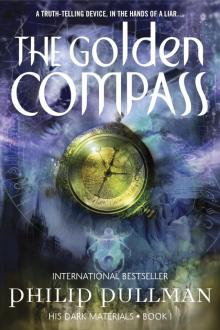 The Golden Compass
The Golden Compass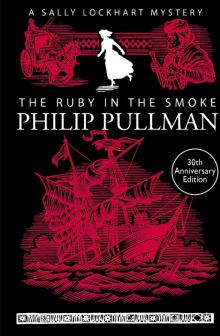 The Ruby in the Smoke
The Ruby in the Smoke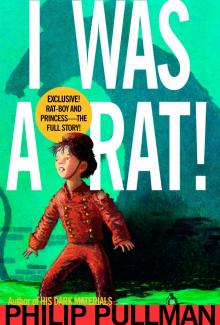 I Was a Rat!
I Was a Rat!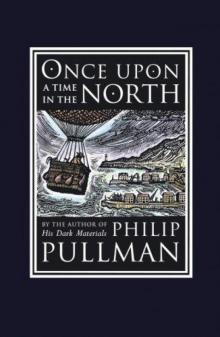 Once Upon a Time in the North
Once Upon a Time in the North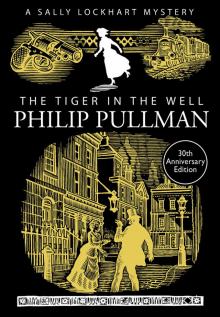 The Tiger in the Well
The Tiger in the Well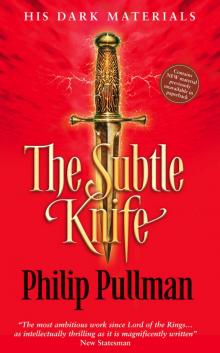 The Subtle Knife
The Subtle Knife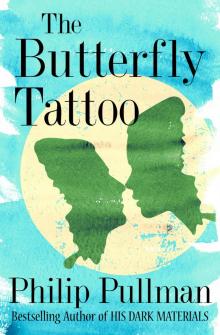 The Butterfly Tattoo
The Butterfly Tattoo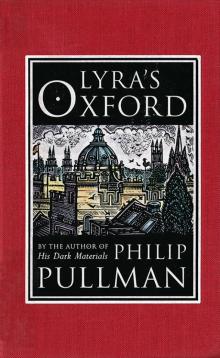 Lyra's Oxford
Lyra's Oxford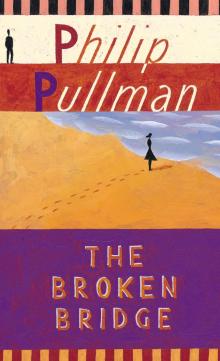 The Broken Bridge
The Broken Bridge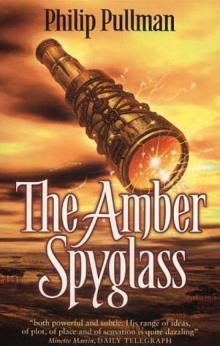 The Amber Spyglass
The Amber Spyglass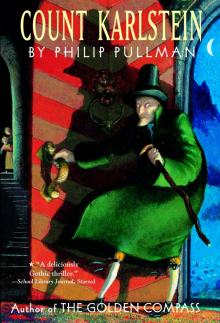 Count Karlstein
Count Karlstein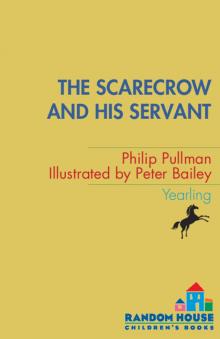 The Scarecrow and His Servant
The Scarecrow and His Servant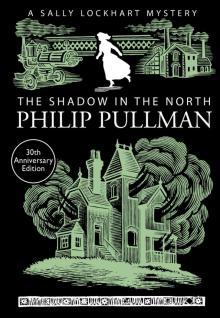 The Shadow in the North
The Shadow in the North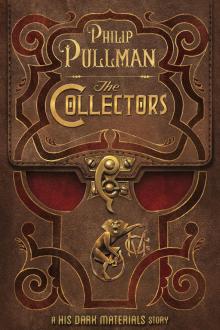 The Collectors
The Collectors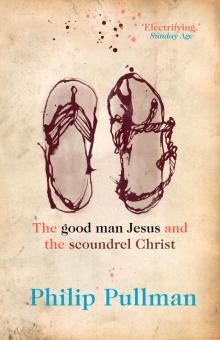 The Good Man Jesus and the Scoundrel Christ
The Good Man Jesus and the Scoundrel Christ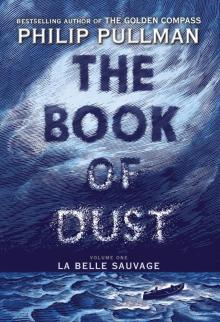 La Belle Sauvage
La Belle Sauvage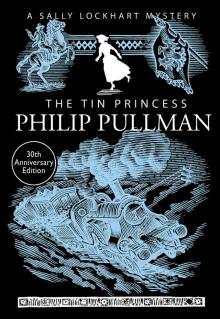 The Tin Princess
The Tin Princess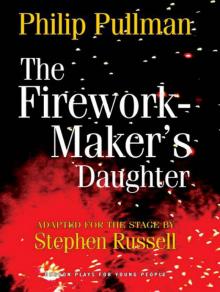 The Firework-Maker's Daughter
The Firework-Maker's Daughter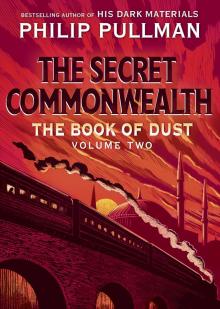 The Book of Dust: The Secret Commonwealth (Book of Dust, Volume 2)
The Book of Dust: The Secret Commonwealth (Book of Dust, Volume 2)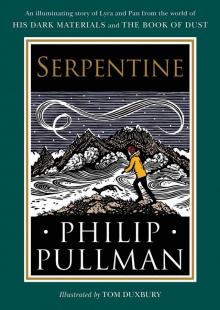 Serpentine
Serpentine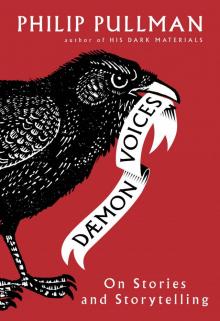 Daemon Voices
Daemon Voices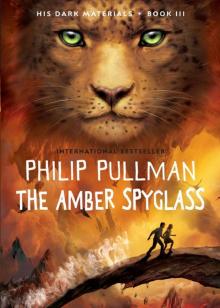 The Amber Spyglass: His Dark Materials
The Amber Spyglass: His Dark Materials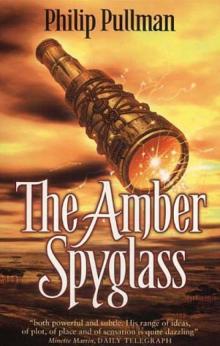 The Amber Spyglass hdm-3
The Amber Spyglass hdm-3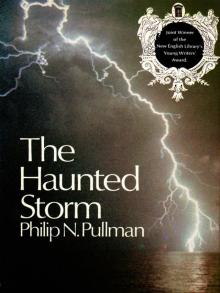 The Haunted Storm
The Haunted Storm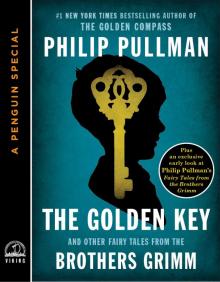 The Golden Key
The Golden Key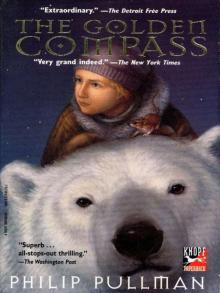 His Dark Materials 01 - The Golden Compass
His Dark Materials 01 - The Golden Compass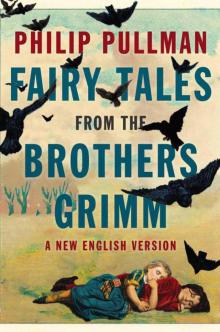 Fairy Tales from the Brothers Grimm: A New English Version
Fairy Tales from the Brothers Grimm: A New English Version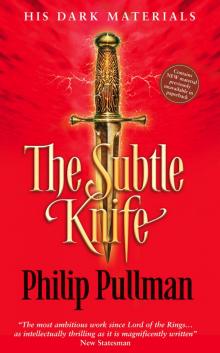 His Dark Materials 02 - The Subtle Knife
His Dark Materials 02 - The Subtle Knife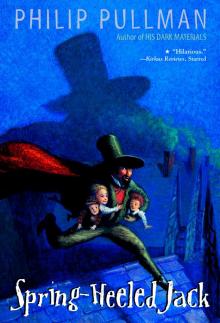 Spring-Heeled Jack
Spring-Heeled Jack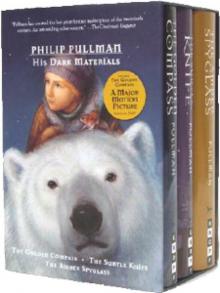 The Golden Compass hdm-1
The Golden Compass hdm-1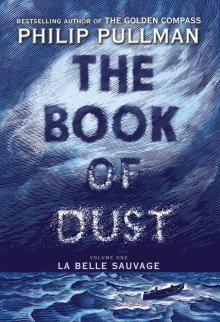 The Book of Dust, Volume 1
The Book of Dust, Volume 1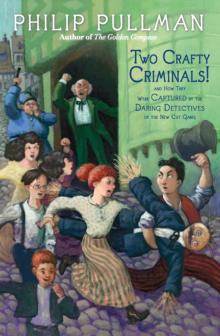 Two Crafty Criminals!
Two Crafty Criminals!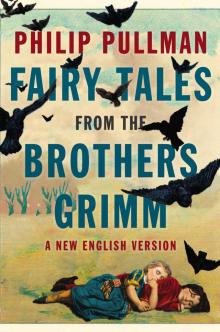 Fairy Tales from the Brothers Grimm
Fairy Tales from the Brothers Grimm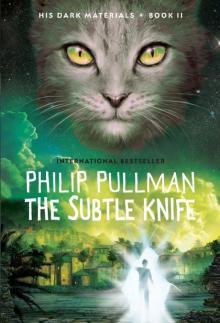 The Subtle Knife: His Dark Materials
The Subtle Knife: His Dark Materials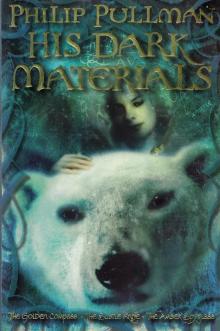 His Dark Materials Omnibus
His Dark Materials Omnibus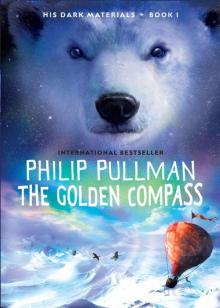 The Golden Compass: His Dark Materials
The Golden Compass: His Dark Materials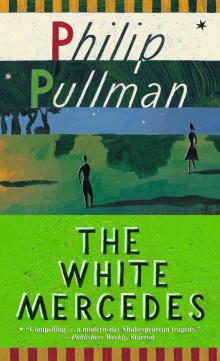 The White Mercedes
The White Mercedes